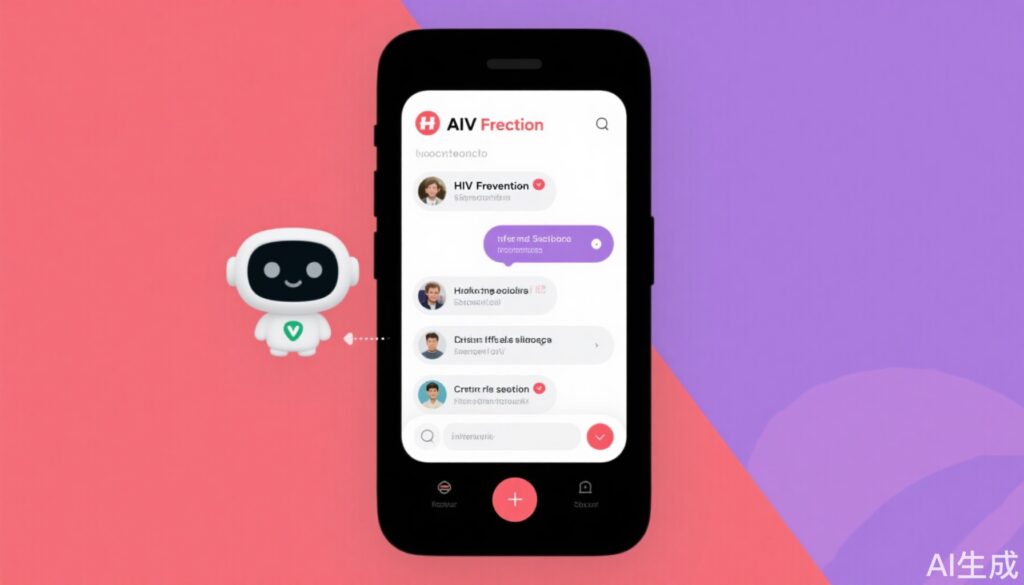Study Background and Disease Burden
Malaysia faces a complex and growing HIV epidemic that has notably shifted from needle sharing among drug users to sexual transmission, particularly affecting men who have sex with men (MSM). According to the Malaysian Ministry of Health, MSM account for a significant proportion of new HIV diagnoses, emphasizing the critical need for targeted interventions. In response, our research team developed a web-based artificial intelligence (AI) chatbot, positioned to facilitate HIV awareness and testing among this vulnerable population. The chatbot was launched on MYHIV365, designed to be a user-friendly resource promoting HIV testing and healthcare access.
Objective
This study’s primary aim was to evaluate the usability of the AI chatbot in raising awareness about HIV testing and facilitating access to services among MSM in Malaysia.
Study Design
An observational study was conducted from August 2023 to March 2024, involving 334 MSM participants recruited through community outreach initiatives and by leveraging social-networking applications. Flyers were distributed, highlighting the availability of the chatbot. The interactions between participants and the chatbot were recorded and subsequently analyzed using R software (Posit Software, PBC), focusing on predefined metrics of performance and user engagement.
Key Findings
The AI chatbot successfully facilitated interaction with 334 participants. It enabled users to obtain free HIV self-testing kits, provided extensive information on HIV, pre-exposure prophylaxis (PrEP), and mental health resources. The chatbot references 220 MSM-friendly clinics, detailing essential operational information such as addresses and contact numbers. A total of 393 interactions were logged, revealing that 91% of participants engaged with the chatbot once, while 9% interacted multiple times. Interaction durations varied widely, ranging from 1 to 31 minutes. Most inquiries (92.1%) regarding HIV and PrEP were adequately addressed by the chatbot. However, there were 31 instances where participants posed questions outside the programmed responses, indicating a potential area for algorithm enhancement.
The prevailing metrics suggest a significant usability rate for the chatbot, aligning with the goal of promoting HIV testing and awareness among MSM. The chatbot functioned effectively as a conduit for linkage to necessary health resources, demonstrating high levels of participant engagement and satisfaction within the defined scope.
Expert Commentary
Expert opinion supports the efficacy of AI-driven health resources in addressing public health crises, particularly in underserved populations. However, several limitations and considerations must be addressed. One critical factor is the chatbot’s necessity for continuous learning and adaptation to user queries deemed outside its pre-programmed scripts. This emphasizes the importance of incorporating advanced machine learning techniques for optimal performance.
Additionally, experts advocate for leveraging these chatbots to not only educate and inform but also to reduce stigma associated with HIV testing among MSM. Integration with healthcare systems to streamline service access will be paramount in moving forward, ensuring that individuals feel safe and supported in seeking testing and treatment.
Conclusion
The AI chatbot evaluated in this study shows considerable promise as a tool for facilitating HIV testing and awareness among MSM in Malaysia. Highlights from the study underscore the high usability rate and the necessity of expanding the chatbot’s capabilities to provide personalized, relevant health information. Future iterations of such technology should prioritize strong connectivity with existing healthcare systems and incorporate feedback mechanisms for ongoing improvements. Ultimately, strategies designed to mitigate stigma and discrimination against MSM will optimize the implementation of AI solutions in public health interventions aimed at curbing the HIV epidemic.
References
Ni Z, Oh S, Saifi R, Azwa I, Altice FL. Evaluating the Usability of an HIV Prevention Artificial Intelligence Chatbot in Malaysia: National Observational Study. JMIR Hum Factors. 2025 Jul 15;12:e70034. doi: 10.2196/70034. PMID: 40663792; PMCID: PMC12283058.



